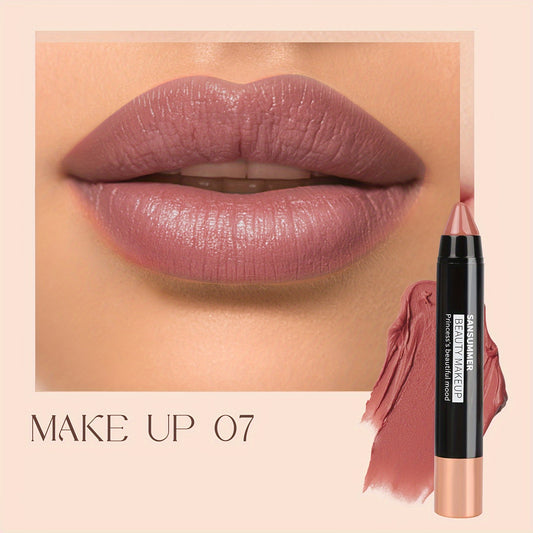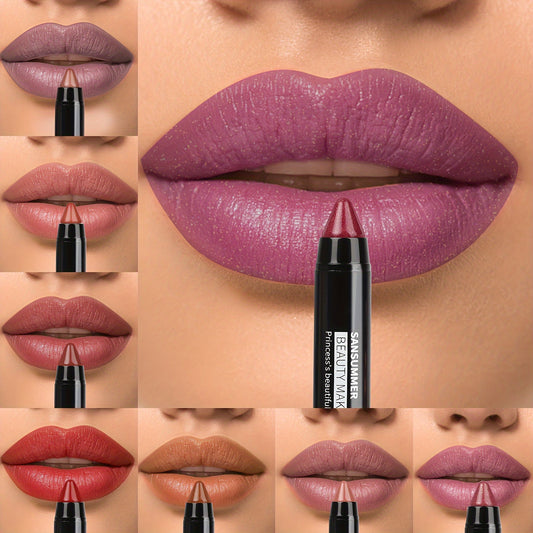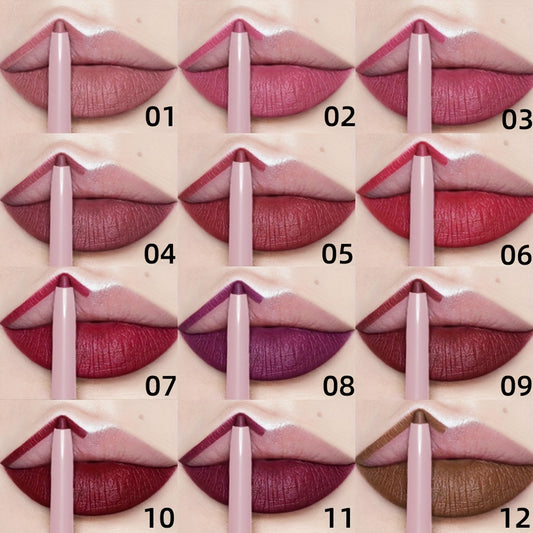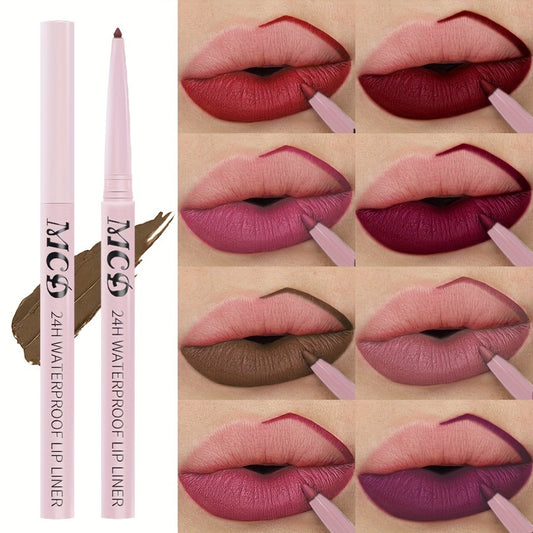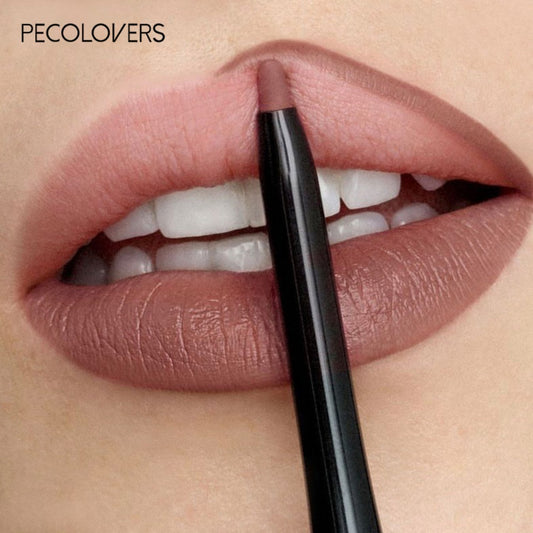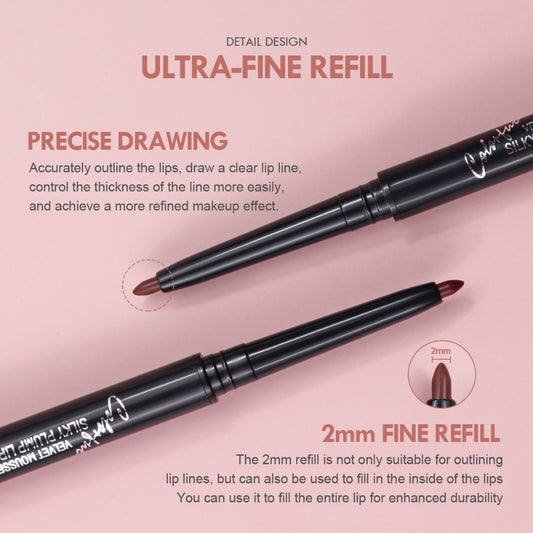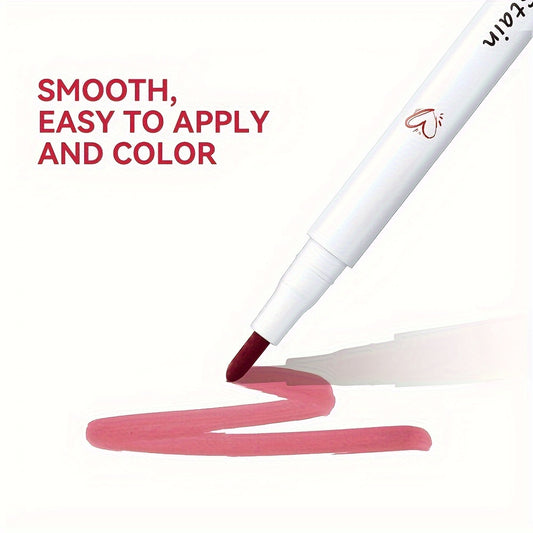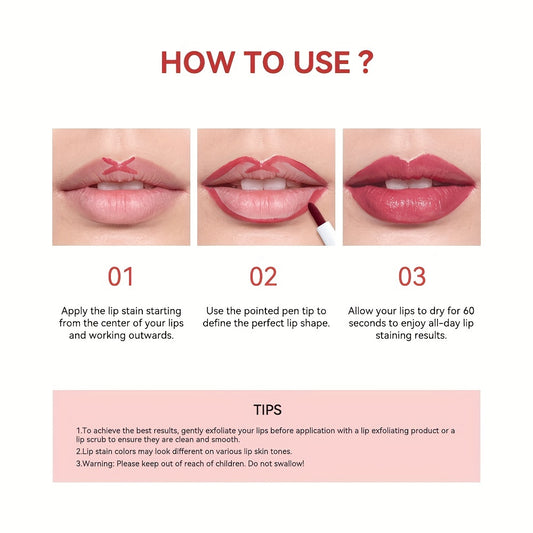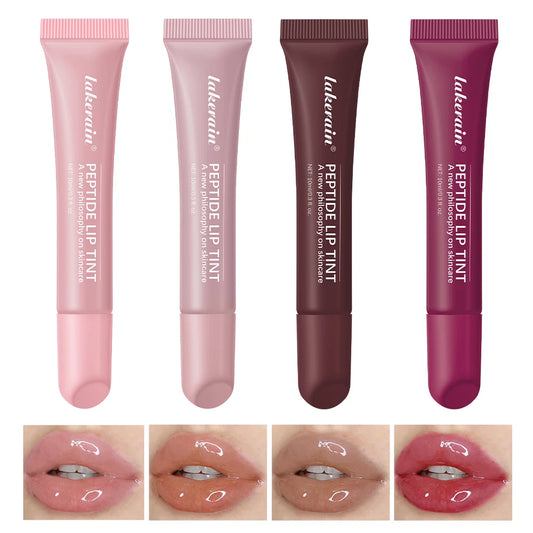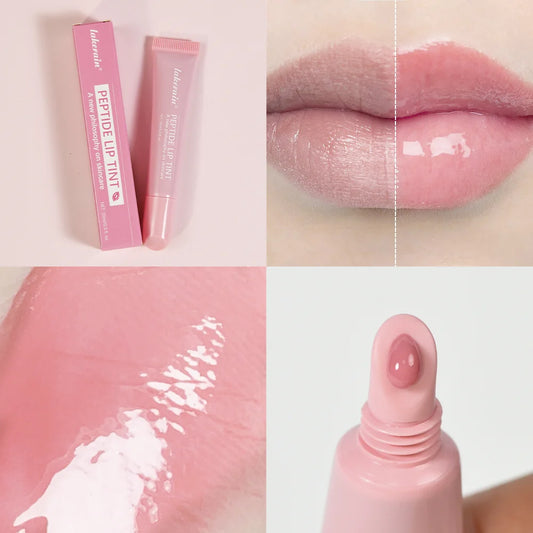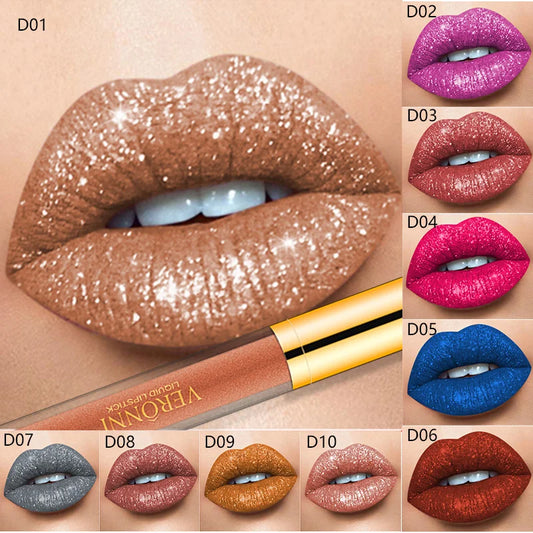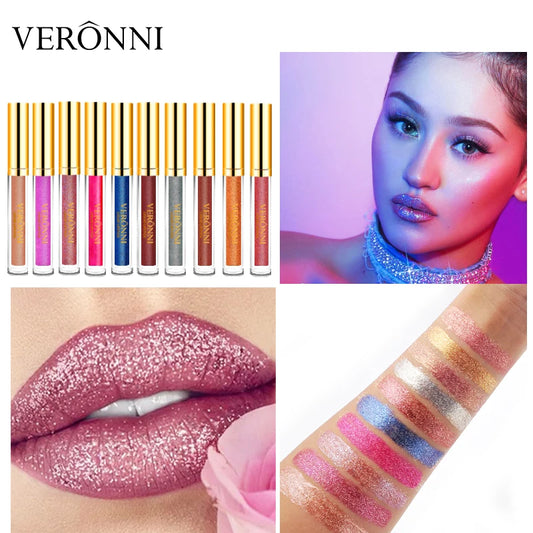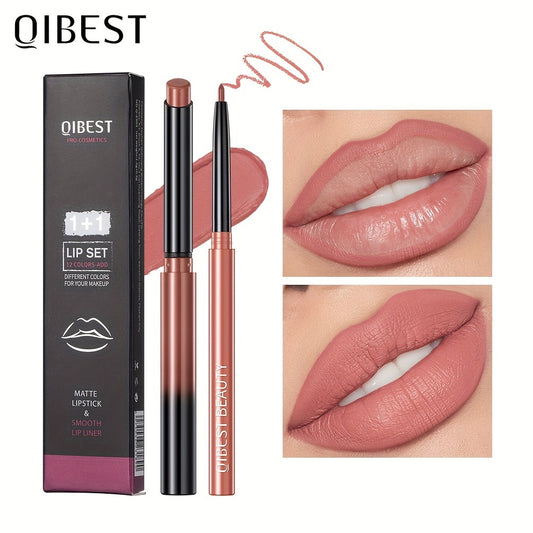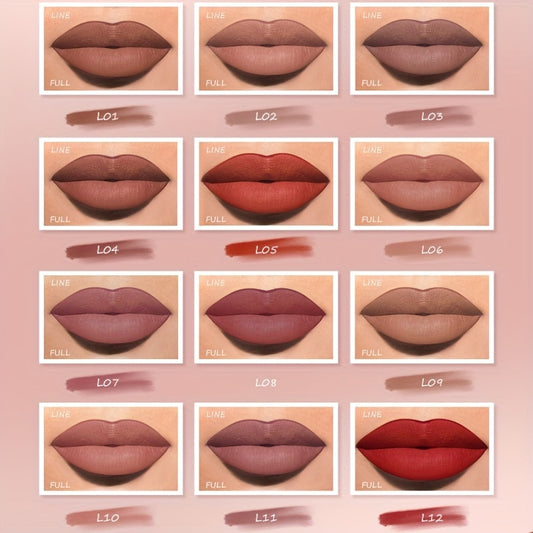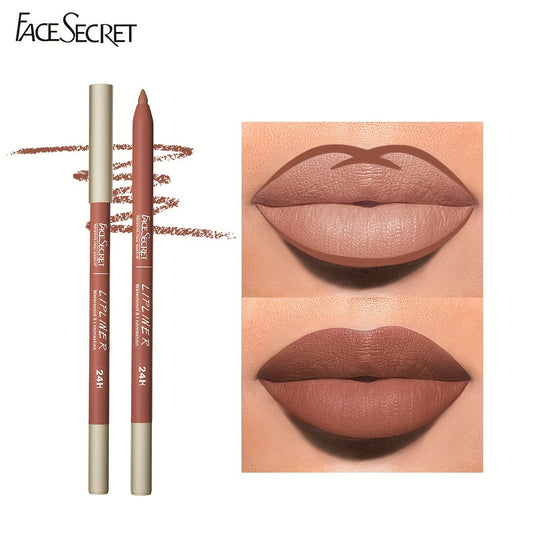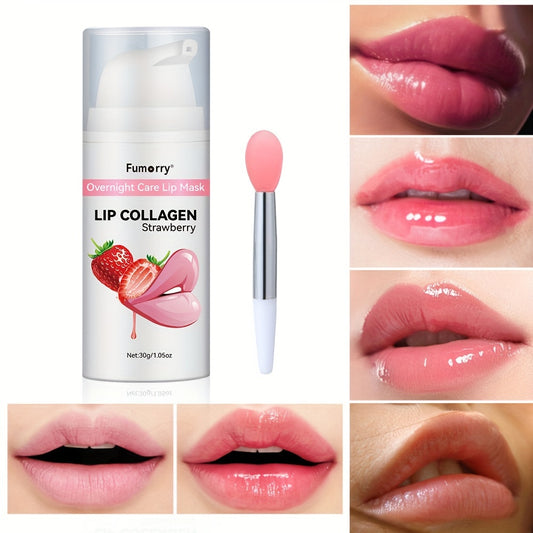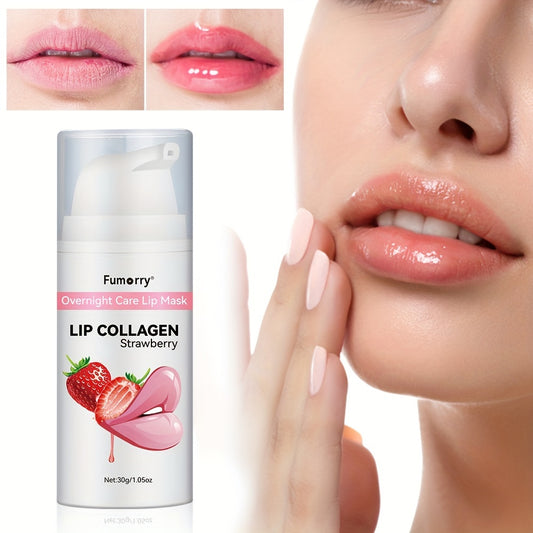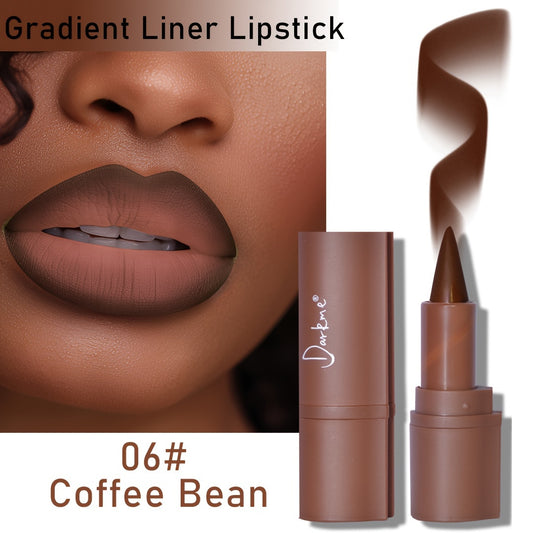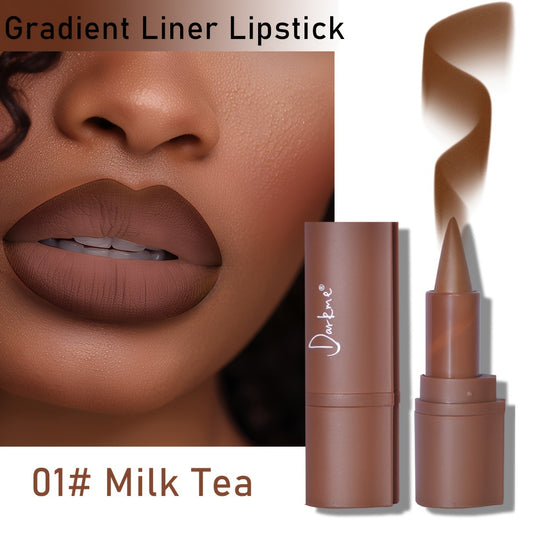Understanding Dry Lips: The Role of Vitamin Deficiency in Lip Health
Share
Dry lips can be more than just a seasonal annoyance; they might signal a vitamin deficiency. Understanding how certain vitamins contribute to lip health can help you keep your lips soft and hydrated. In this article, we’ll explore the vitamins that play a role in maintaining healthy lips, the deficiencies that can lead to dryness, and some practical tips to keep your lips in top shape.
Key Takeaways
- Vitamin B complex is essential for preventing dry lips and promoting moisture retention.
- Vitamin E protects lips from damage and helps keep them hydrated.
- Vitamin C is crucial for collagen production, which maintains lip elasticity.
- Deficiencies in vitamins A, D, and K can also contribute to dry lips.
- Staying hydrated and eating a balanced diet rich in these vitamins can help prevent dry lips.
Common Vitamins That Affect Lip Health
Vitamin B Complex and Lip Health
Vitamin B complex keeps your lips from drying out and supports healthy cell turnover. Vitamin B complex plays an indispensable role in keeping your lips nourished. This group of vitamins helps maintain moisture and improves blood flow, which in turn prevents chapping.
Some benefits of vitamin B include:
- Supporting cellular regeneration
- Enhancing natural circulation
- Minimizing the chances of cracking
Common food sources include eggs, whole grains, and leafy greens. Even small details count in your routine, much like knowing when to enable cookies.
The Importance of Vitamin E
Vitamin E acts as an antioxidant for your lips, protecting them from the everyday wear and tear caused by the environment. Its protective nature helps lock in moisture and allows your lips to recover from minor damage.
Key points about vitamin E:
- It shields lip skin from free radicals
- It aids in retaining natural moisture
- It supports repair processes
Many nuts, seeds, and plant oils are rich in vitamin E. Integrating these into your meals isn’t a huge shift, but it can really help maintain your lip comfort.
Role of Vitamin C in Lip Hydration
Vitamin C assists in collagen production, which is vital for keeping your lips firm and hydrated. A steady intake of vitamin C means your lips are more resilient against dryness and can bounce back quicker from minor wear.
Here are some points to consider:
- It fuels collagen synthesis
- It helps in retaining lip hydration
- It supports overall skin repair
Below is a simple table showing a few common sources of vitamin C:
| Food Item | Vitamin C (mg per serving) |
|---|---|
| Oranges | 70 |
| Strawberries | 59 |
| Bell Peppers | 95 |
Sometimes, a slight tweak in your diet can improve your lip health significantly, much like remembering to enable cookies when dealing with unexpected system issues.
Vitamin Deficiencies Linked to Dry Lips
B Vitamins and Their Impact
Not getting the right amounts of B vitamins can really mess with your lip health. These vitamins help keep your lips moist and soft. Without enough of them, you might see cracks, swelling and even chapping. Not getting enough B vitamins can leave your lips feeling rough and sore.
Here are a few things that happen when your B vitamin levels drop:
- Cracks and splits form at the corners of your mouth.
- Lips start to feel unusually dry or even scaly.
- Inflammation or a swollen feeling often follows.
Sometimes, issues with B vitamin absorption are linked to other health or diet concerns, which can even tie into access blocked messages on certain websites, reminding us that everything in our body is connected.
Effects of Vitamin A Deficiency
A shortage of vitamin A can seriously alter the look and feel of your lips. When you’re low on vitamin A, the natural process of cell renewal slows down, which means your lips can lose their smooth texture and color balance. This isn’t something that fixes itself overnight.
A quick look at how vitamin A helps and what might go wrong:
| Vitamin | Role in Lip Health | Common Food Sources |
|---|---|---|
| Vitamin A | Maintains cell renewal and moisture | Carrots, spinach, mangoes |
If you’re not eating enough foods that supply vitamin A, you may notice your lips getting drier, losing their brightness, or even starting to peel. A few common signs to watch for include:
- Increased roughness on the lip surface.
- Noticeable peeling or flaking.
- Reduced natural color and plumpness.
Consequences of Vitamin D Deficiency
While vitamin D is best known for aiding our bones, it also plays a role in skin repair and moisture retention. A deficiency here can contribute to the lack of hydration in your lips, making them less resilient against everyday conditions.
When vitamin D levels fall, you could see several signs on your lips. Consider the following points:
- Lips lose their natural gloss and feel drier than usual.
- There’s less support for repairing minor lip injuries, which can cause chapping.
- Overall, reduced moisture can lead to a rough, uncomfortable texture.
Sometimes, when multiple vitamin deficiencies come into play, you might find that your lips not only look different but also suffer in function. It’s a reminder that keeping a balanced diet is more than just about looking good; it’s about feeling good too.
In summary, paying attention to your vitamin intake is a practical step to avoid these uncomfortable lip issues. Whether it’s boosting your B vitamins, catching up on vitamin A from foods, or ensuring you get enough vitamin D, small changes in your diet can make a big difference.
Symptoms of Dry Lips Due to Vitamin Deficiency
Our lips can show signs when vitamins are low. In this section, we talk about three clear symptoms that many have noticed.
Persistent Dryness and Discomfort
When vitamins are missing from your diet, your lips can feel constantly dry. They might crack, peel, or even hurt when you talk or eat. This dryness really takes a toll on everyday comfort.
A few points to keep in mind:
- Dryness may lead to cracks that make eating uncomfortable.
- Chapped lips often feel rough and are hard to hydrate.
- Constant discomfort can affect your daily smile and talk.
Some people even resort to lip care advice as a quick way to soothe their symptoms.
Discoloration and Thinning
Low vitamin intake can also change your lip color and size. The lips might start to look uneven, or even a bit thinner than before. This isn’t just about looks; it’s a sign that your skin isn’t getting the care it needs.
Consider these aspects:
- A change in color might mean the skin is not nurturing itself properly.
- Thinning lips can be a sign of tired skin cells and less moisture retention.
- Visible irregularities could hint at nutrient issues backing up these changes.
Loss of Elasticity in Lips
Another way vitamin deficiency shows is in the loss of elasticity. Without enough vitamins, especially those linked to collagen production, your lips may lose that soft, springy feel. They might not bounce back as quickly from daily use.
Here’s a small table that summarizes these symptoms:
| Symptom | What You Notice | Often Linked With |
|---|---|---|
| Persistent Dryness | Rough texture and frequent cracking | B, E, C |
| Discoloration and Thinning | Uneven color and reduced fullness | A, B |
| Loss of Elasticity | Lips feel less flexible and supple | C |
Remember, noticing these signs in your lips can be your body’s way of asking for better nutrition. Small changes in your habits can make a real difference in lip care.
In summary, monitoring these changes closely and making a few adjustments - like adding a bit more vitamin-rich food or even checking out lip care tips - can help keep your lips in good shape.
Dietary Sources of Essential Vitamins

Foods Rich in Vitamin B
Foods bursting with vitamin B can help keep your lips from feeling chapped. These foods often include lean meats, dairy products, eggs, and a variety of green vegetables. For instance, a simple spinach salad might add that extra boost, helping your natural moisture levels stay up. Here are a few everyday options:
- Chicken and turkey are great for a quick protein fix.
- Dark leafy greens add a crisp, fresh touch to your meals.
- Whole grains like oats or brown rice work well at any time of day.
If you need more insights on nutrient-rich meals, check out key tips.
Vitamin E Sources
Vitamin E acts as a guard for your lips, helping to soothe rough patches and protect them from the harsh outdoors. Including vitamin E in your diet can be as easy as snacking on nuts, seeds, or enjoying a half an avocado spread on toast. Here’s a simple table to guide you through common vitamin E sources:
| Food | Serving Size | Vitamin E Content |
|---|---|---|
| Almonds | 1 oz | 7.3 mg |
| Sunflower Seeds | 1 oz | 9.8 mg |
| Avocado | 1/2 fruit | 2 mg |
Including these foods in your daily snack lineup can work wonders.
Vitamin C-Rich Foods
Vitamin C is vital for keeping your lips hydrated and aiding their natural repair process. This vitamin is widely available in many fruits and veggies. Consider integrating these everyday choices into your meals:
- Oranges – a classic, juicy option.
- Strawberries – a sweet burst of flavor with every bite.
- Kiwi – small but packed with benefits.
Remember, keeping things simple with hydration and these vibrant foods sets the stage for naturally healthy lips.
For more everyday wellness ideas, you might find daily advice useful.
Tips for Maintaining Lip Health
Your lips need a bit of attention too. Taking care of them goes beyond just slathering on any old balm. Here are some practical and easy ways to help keep your pout smooth and soft, even when the weather isn't in your favor.
Hydration and Its Importance
Drinking enough water is a simple way to give your lips a natural boost. When you're busy, it's easy to skip those water breaks, but that can leave your lips dry and uncomfortable. Remember, staying well-hydrated is one of the simplest steps toward healthier lips.
Consider these actions:
- Keep a refillable bottle within reach throughout the day.
- Set reminders on your phone to have a sip now and then.
- Swap out caffeinated drinks for water as much as possible.
A quick table to show a daily water goal might help:
| Activity | Glasses of Water |
|---|---|
| Office work | 6-8 |
| Outdoor activities | 8-10 |
| Post-workout recovery | 10+ |
Protecting Lips from Environmental Stressors
Outside elements like harsh sun, wind, or cold can strip moisture from your lips. Even if you’re inside most of the time, a sudden burst of cold air or a sunny day can catch your lips off guard.
Here are some everyday tips:
- Use a balm that acts as a barrier against external factors.
- Cover your face with a scarf on windy days.
- Reapply your lip protection before going outdoors.
Sometimes, a product that marries hydration with a light tint, like tinted lip oil, can offer a nice dual benefit.
It’s not just about slapping on any product; small, thoughtful changes can really make a difference in maintaining soft, smooth lips.
Healthy Eating Habits for Lip Care
Feeding your body the right nutrition does wonders for your skin—including your lips. A balanced diet enriched with fruits, vegetables, and lean protein helps fight off dryness.
Here's a list to consider when planning your meals:
- Include vitamin-rich foods like leafy greens, citrus fruits, and nuts.
- Incorporate fatty acids from fish or plant-based sources to sustain moisture.
- Avoid too many processed foods that can lead to dehydration.
Pairing a balanced meal plan with a reliable lip care product, such as using a tinted lip oil after your meal, enhances your routine even more.
Overall, these simple steps, if made a habit, can really up your lip care game. Just a few tweaks in your daily routine can mean the difference between chapped lips and a naturally smooth smile.
Understanding the Role of Antioxidants
How Vitamin E Protects Lips
Vitamin E is known to guard lip cells against the damage caused by everyday exposure, such as sun and wind. It works by neutralizing free radicals which can harm the thin skin on your lips. Among its benefits, it helps maintain moisture and smoothness in areas where dryness often occurs. For a bit of extra assurance, check out our cookie assistance for details on similar protectiveness measures in other areas of health.
- Protects cell membranes
- Reduces inflammation
- Strengthens the skin barrier
Vitamin E often plays an underappreciated role in keeping lips supple and soft.
The Antioxidant Benefits of Vitamin C
Vitamin C contributes to lip hydration by supporting collagen production as well as offering an antioxidant boost. It fights off harmful agents that can lead to premature aging. Here is a brief table that shows how its activity measures up in various situations:
| Benefit | Impact Level | Brief Note |
|---|---|---|
| Collagen Support | High | Boosts skin repair |
| Free Radical Control | Medium | Reduces oxidative stress |
| Hydration Boost | High | Aids in moisture retention |
Another way to look at Vitamin C benefits is to consider its wholesome effects:
- Supports overall skin texture
- Helps counteract environmental stress
- Works well in tandem with other antioxidants
Role of Antioxidants in Skin Health
Antioxidants as a group are vital for skin maintenance and help preserve natural elasticity. They work together to prevent damage from daily stresses and help the skin bounce back from minor irritations. Here’s a simple three-step list to keep your skin in good shape:
- Include antioxidant-rich foods in your diet
- Avoid prolonged exposure to harmful elements
- Regularly care for your skin with nourishing products
Remember, a small change in your daily routine, like focusing on antioxidant intake, can make a large difference in preserving your skin's natural look.
Each of these nutrients works in their own way to fend off the effects of daily wear, keeping your skin and lips in better shape overall.
Lifestyle Changes to Prevent Dry Lips
Avoiding Dehydrating Substances
Some everyday habits can really worsen the dryness of your lips. Cutting back on sugary drinks, alcohol, and caffeinated beverages helps keep your whole body, including your lips, well-hydrated. Maintaining hydration throughout the day is one of the easiest ways to support your lip health.
Here are a few practical steps to consider:
- Drink water every 2-3 hours.
- Choose herbal teas over caffeinated drinks when possible.
- Keep a refillable water bottle with you at all times.
Staying consistent with good hydration routines can noticeably boost your lip moisture levels. Stay hydrated
Protective Measures Against Weather
Harsh weather conditions can leave your lips chapped and uncomfortable. When it's extremely cold, windy, or sunny, your lips need extra protection. Instead of reaching for just any lip balm, opt for ones that are designed to both protect and soothe fragile skin.
Try these simple guidelines:
- Use a lip balm with SPF when you're exposed to sunlight.
- Cover your mouth with a scarf during particularly cold or windy days.
- Reapply your chosen lip product throughout the day to maintain a protective barrier.
Remember, taking preventive measures during weather changes can make a real difference. Weather care tips
Incorporating Supplements
Sometimes, adjusting your diet and routines may not be enough, and that's when supplements can help. Using supplements that support skin and lip health can provide you with an extra boost in fighting dryness.
Here are some tips if you decide to explore supplements:
- Consult a healthcare provider before starting any new supplement to ensure it's suitable for you.
- Choose supplements that are clearly labeled for skin or lip health.
- Combine supplements with a balanced diet rich in natural vitamins from fruits and vegetables.
Even small changes like these can contribute significantly to preventing dry lips. Lip supplements info
To keep your lips from getting dry, making some simple changes in your daily routine can help a lot. Start by drinking plenty of water to stay hydrated. Using a good lip balm can also protect your lips from the wind and cold. Try to avoid licking your lips, as this can make them drier. Eating healthy foods rich in vitamins can also support lip health. For more tips and advice on caring for your lips, visit our website!
Wrapping It Up
So, to sum it all up, dry lips can really be a sign that your body is missing some important vitamins. We talked about how vitamins like B, E, and C are key players in keeping your lips healthy. If you're dealing with chapped lips, it might be time to check your diet. Staying hydrated and protecting your lips from the elements can also make a big difference. Remember, taking care of your lips is just as important as any other part of your health.
Frequently Asked Questions
What vitamins are important for healthy lips?
Vitamins B, E, and C are key for keeping lips healthy.
Can a lack of vitamins cause dry lips?
Yes, not getting enough vitamins can lead to dry and chapped lips.
How can I improve my vitamin B levels for better lip health?
You can eat foods like whole grains, nuts, and leafy greens to boost vitamin B.
What does vitamin E do for my lips?
Vitamin E helps protect lips from damage and keeps them moist.
How can I get more vitamin C to help my lips?
Eating fruits like oranges and strawberries can increase your vitamin C intake.
Are there other vitamins that might cause dry lips if I'm low on them?
Yes, vitamins A and D can also affect lip health when you don't get enough.

